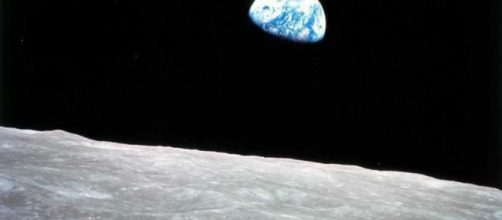According to the UK Telegraph, the European Space Agency took the occasion of the return of three crew members from the International Space Station, including British astronaut Major Tim Peake, to announce the idea of creating a four-person space base between Earth and the moon. Presumably such a facility would be located at one of the Lagrange points where the gravities of the two celestial bodies cancel one another out. The base could be deployed within a decade if the member states of the ESA fund the thing. Major Peake immediately volunteered for the crew of the base.
The idea of a deep space base is nothing new. NASA has studied the concept as part of its Journey to Mars program. The idea is that such a base would be situated at the L2 point over the far side of the moon. Technology and systems for the lengthy interplanetary voyage to Mars would be tested at such a facility. In the meantime, astronauts would remotely control rovers on the surface of the moon to pass the time.
In the context of a return to the lunar surface, something that is gaining more favor as the Obama administration enters its last days, the base would be a useful way station. Astronauts could visit the base riding Orion spacecraft launched by the heavy lift Space Launch System. They could rise reusable lunar landers down to the moon’s surface for sorties or to visit a base, something like the moon village the Europeans are also talking about.
If a rocket fuel refinery would be built, using water ice on the moon to create liquid oxygen and liquid hydrogen, the fuel could be shipped to the deep space base. Spacecraft headed to destinations elsewhere in the solar system say, Mars, would top off fuel at the space base, eliminating the need to bring all the fuel they need from Earth.
The question arises, would the member states of the ESA vote to fund such a project? A deep space base would be the most challenging undertaking the European Union ever undertook. Of course, the ESA could seek an international partner, say the United States or Russia.
Major Peake’s desire to participate in such a project could be complicated by the Brexit vote.
If Great Britain leaves the European Union, it might not be a participant in the European Space Agency either. Then Britain would have to start its own space program, as some in the UK have advocated.

